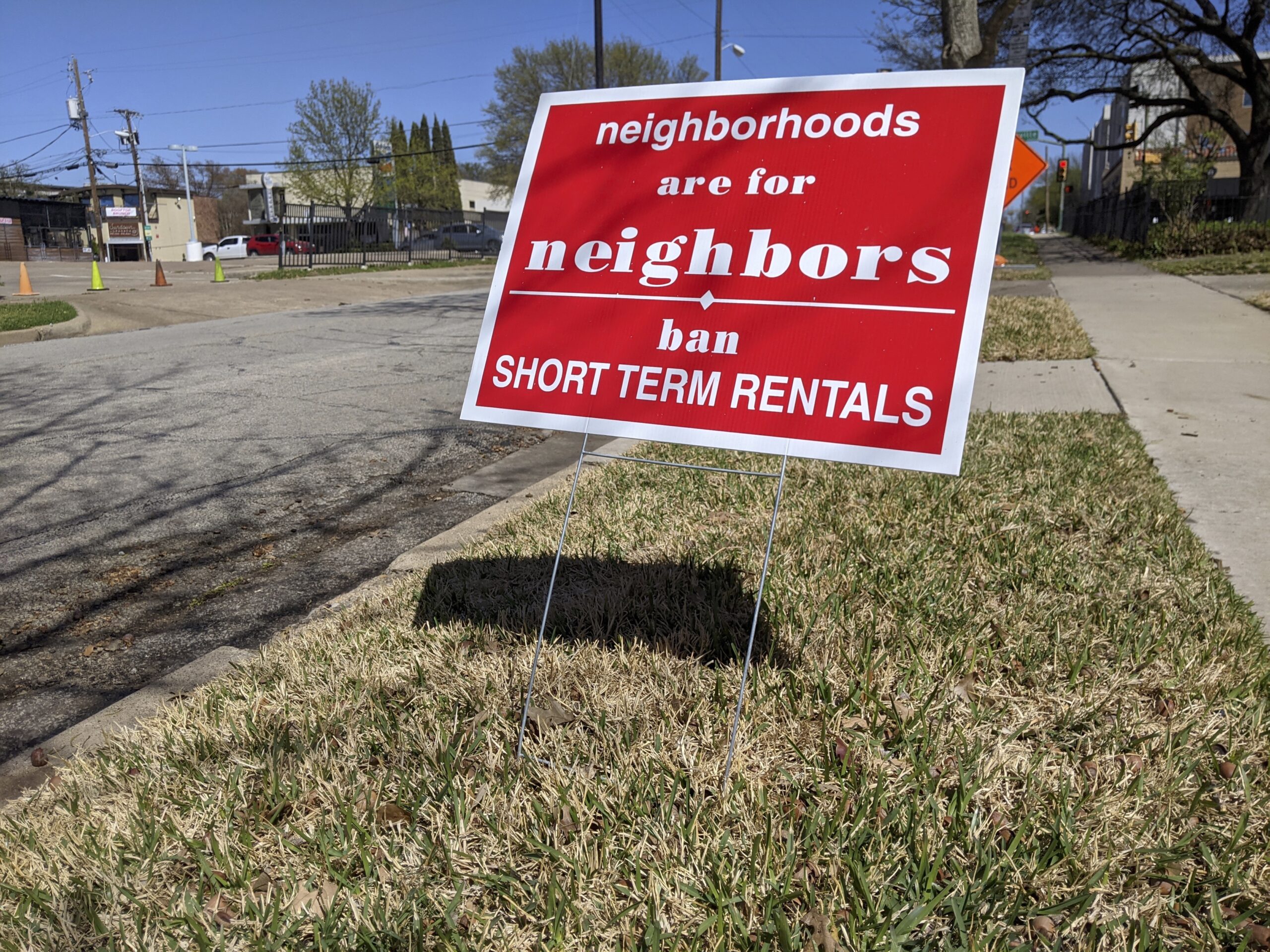A Dallas County judge has temporarily blocked the city from enforcing its new short-term rental ordinance that the City Council adopted in June.
Operators of Airbnb and Vrbo rentals say Dallas effectively banned short-term rentals after years of debate. Council approached the issue with a one-two punch. It triggered new zoning to eliminate STRs from neighborhoods zoned for single-family residential, and limited their density in commercial and multifamily zoned areas. It also included an ordinance that regulated what was left of the city’s short-term rental market. It went into effect immediately, but was not due to be enforced until December 14.
When it passed, many council members seemed unfazed by the prospect of a lawsuit.
“I’m just saying, I don’t fear courts,” said Councilwoman Carolyn King Arnold, who represents portions of Oak Cliff. “Let’s dress up and go.”
In October, four short-term rental operators and the Dallas Short-Term Rental Alliance sued the city. The four plaintiffs—Sammy Aflalo, Vera Elkins, Danielle Lindsey, and Denise Lowry—are longtime short-term rental operators who say they abided by prior city requirements to register and pay hotel occupancy taxes.
Their lawsuit argues that the city’s actions contradict the state constitution and that the reasons the city gave for enacting stricter measures were inconclusive. They asked Judge Monica Purdy to approve a temporary injunction to prevent the city from enforcing the new rules until the lawsuit is resolved in court.
On Wednesday, Purdy agreed, ruling that the injunction was needed “to prevent imminent and irreparable harm.”
The order also said the plaintiffs had provided evidence for seven different aspects of their claim, including that the ordinances and zoning impact the value of a property “without just compensation.”
“There is no adequate remedy at law because it will be impossible to quantify the near decade of investments Plaintiffs made in their STR businesses, including the hiring of employees, acquisition of numerous properties, and improvements on those properties made in reliance on the City’s representations that STRs were and re a lawful business,” she wrote.
Purdy also acknowledged that one of the reasons the operators might be successful in their suit is thanks to the so-called “Death Star” bill passed this year by the Texas Legislature, which blocks local governments from passing ordinances that contradict state law.
The city of Dallas disagrees. In an argument opposing the injunction, City Attorney Tammy Palomino said the operators are “seeking to promote their own financial interests over the legitimate interests of all other stakeholders.”
Palomino also argued that STR operators “freely admit that their STRs are businesses that they operate in residentially-zoned neighborhoods.”
The trial is scheduled to begin on June 3, 2024. The city could choose to appeal the injunction.
Author






